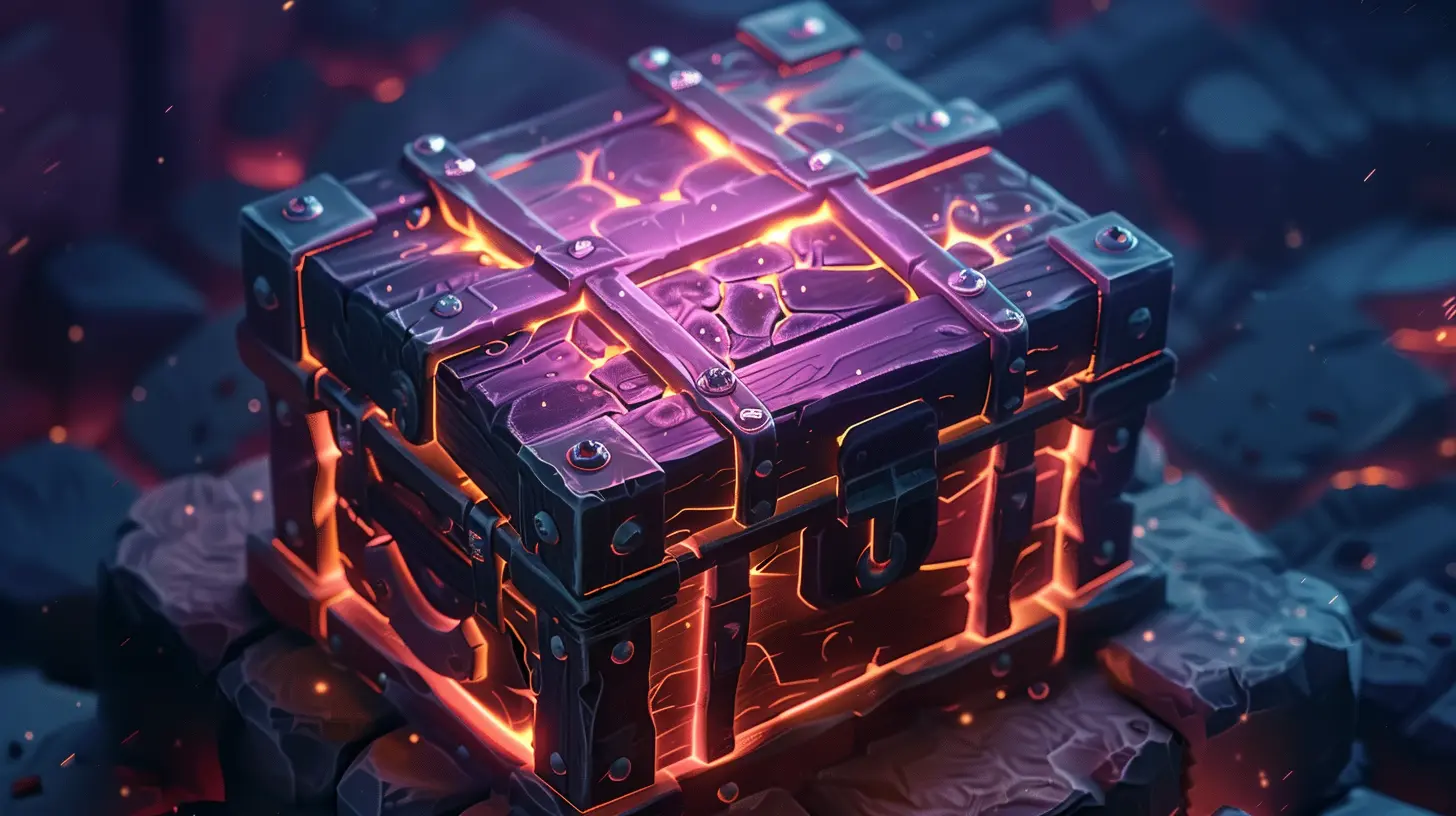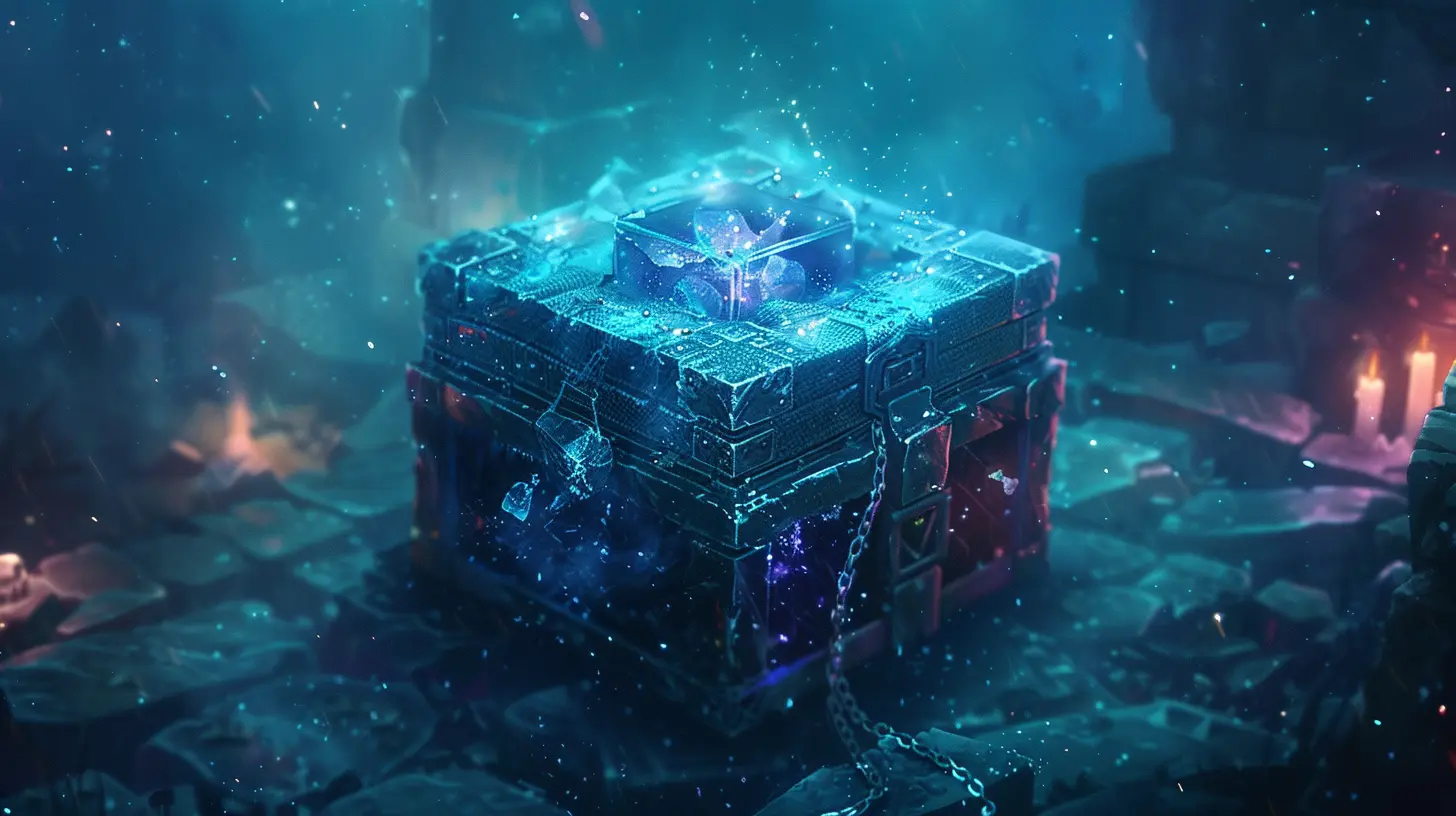The Impact of Loot Boxes on Game Design and Difficulty
13 October 2025
Let’s talk about something that’s as controversial in gaming as pineapple is on pizza — loot boxes. Yep, those shiny, mysterious in-game containers that promise glittering rewards but are more addictive than that “one more level” feeling at 3 a.m.
Love ‘em or hate ‘em, loot boxes have completely reshaped not only how we spend money in games but how games are being crafted around them. Oh yes, these little digital dice rolls have had a massive impact on both game design and difficulty. And it’s way more twisted (and interesting) than you might think.
So, buckle up, fellow button mashers — we’re diving deep into the wild world of loot boxes and how they’re subtly (and not-so-subtly) changing the games we play.
What Even Is a Loot Box?
Alright, before we open Pandora’s loot crate, let’s define what we’re dealing with.A loot box is a virtual item that players can open to receive randomized rewards. Think of it like a digital version of a Kinder Egg: you don’t know what toy you’re getting, but you sure hope it’s the cool one. They usually contain anything from cosmetic skins and emotes to powerful weapons or character upgrades.
And here’s the kicker – you can earn them in-game or buy them with real money. That’s where things start to get spicy.
The Rise of the Loot Box Economy
Loot boxes didn’t just appear out of nowhere like a Final Fantasy summoning. They slowly crept into mainstream gaming like a stealth build rogue. A few years ago, they were mainly in free mobile games. But then, like a boss fight gone wrong, they exploded across AAA titles.Publishers saw them as a goldmine of microtransactions. Why sell a finished game once at $60 when you can sell hope and anticipation over and over again?
This shift wasn’t just about making money — it was about designing games around that money-making mechanic.
How Loot Boxes Hijack Game Design
Imagine you're baking a cake, but instead of just making it delicious, you're told to add random ingredients to keep people coming back hoping it tastes better next time. That’s kind of what loot box-driven game design feels like.Here’s how loot boxes mess with how games are built:
1. Progression Becomes Pay-to-Play
You used to unlock cool stuff by grinding, mastering levels, or completing quests. Now? Games often throw a wall in front of you until you either grind for 15 hours… or just pay $5 for a loot box.Game designers might intentionally slow down progression systems, just enough to frustrate you into making a purchase. It’s not about fun anymore — it’s about friction.
2. Content Gets Locked Behind RNG
Random. Number. Generators. The core mechanic behind loot boxes.Want that legendary sniper rifle? Cool. Just open 87 loot boxes and pray to the digital gods. This system turns exciting content into jackpot prizes. It’s Vegas, but with pixels.
3. Skill Takes a Backseat
When you can simply buy powerful gear, where does that leave skill? Suddenly, it’s not about how clever you play or how sharp your aim is. It’s about your wallet’s depth.And that totally shifts how difficulty works. Games can be artificially hard so that you feel the need to pay for help. That’s not difficulty. That’s manipulation dressed up as challenge.
Difficulty: The Victim of Microtransaction Mayhem
Let’s zero in on this — because this is where the heart of the problem lies for many players.1. Artificial Difficulty for Monetization
Game too hard? You probably just need that one ultra-rare item in the loot box. When game difficulty is twisted to push purchases, it creates a nasty feedback loop. Frustration increases, and developers show up with a (conveniently priced) solution.This isn’t Dark Souls hard; it’s "We Made This Annoying On Purpose" hard.
2. Difficulty Becomes Inconsistent
When some players have paid for legendary gear while others grind with basic weapons, balancing goes out the window. Suddenly, difficulty isn't about fair challenge — it's about who’s paid to win.This creates a wild west of player experiences. Some blaze through levels, others hit brick walls. Not because of skill, but because of loot box RNG.
3. Game Flow Feels Broken
Remember those games where the progression felt like a perfectly tuned symphony? Games that ramped up challenge in satisfying ways?Loot box-heavy games often feel like a DJ is scratching a record — awkward jumps in challenge, jarring difficulty spikes, and weird pacing. That sweet sense of flow just vanishes.
Loot Boxes in Multiplayer Games: A Competitive Nightmare
Now toss all that spicy loot box chaos into a competitive multiplayer game and boom — welcome to Pay-to-Win City.When loot boxes contain performance-enhancing items, the playing field is no longer level. It becomes a battlefield where your credit card is your greatest weapon.
The Domino Effect:
- New players get stomped- Frustrated players quit
- The game becomes less about skill and more about purchases
It’s like entering a fencing tournament and your opponent shows up with a lightsaber bought at the gift shop.
But Wait — Are Loot Boxes Always Evil?
Let’s be fair. Not all loot boxes are the digital spawn of Satan. Some games do it right. When loot boxes are purely cosmetic and don’t impact gameplay, it’s a different story.Games like Overwatch (at least in earlier days) or Apex Legends handle this better. You get flashy skins, not firepower. They’re more about style than supremacy.
Also, a few devs do balance loot boxes with fair rewards and engaging gameplay. It’s rare. But it exists.
So yeah, loot boxes aren’t inherently evil. But the way they’re often used? That’s where the trouble brews.
The Psychological Hook: Why Loot Boxes Are So Addictive
Ever heard of variable ratio reinforcement? No? Well, you definitely know it.It’s the same principle slot machines use. You never know when you’ll get the reward, so you just keep going... or paying.
Loot boxes use this psychological trick to hook players into chasing “one more try.” And it works scarily well. Flashy animations, shiny sounds, rare loot — it’s basically a digital casino.
Kids, teens, adults — it doesn’t discriminate. And that’s where real-world consequences kick in.
Regulation, Backlash & The Future
So, governments and gamers alike are starting to push back. Several countries have looked into regulating loot boxes, comparing them to gambling. Some have even banned them outright from certain games.Developers are also catching the hint. Lately, we’re seeing more games move toward battle passes, direct purchases, or earnable cosmetics — systems that are clearer and less exploitative.
But here’s the thing: as long as loot boxes rake in billions, they're not going away completely. Not unless the pressure — from both players and regulators — keeps building.
So What Does This Mean for Us Gamers?
We’re in a weird spot. Loot boxes are everywhere, from your favorite shooter to that casual mobile puzzler you secretly play on lunch breaks.Our job? Vote with our wallets.
If a game treats you like a coin-pushing cow instead of a player — don’t support it. Reward devs who respect your time and skill. Let your friends know what’s up. Share reviews. Support games with ethical monetization.
Gaming should feel like fun, not like shopping in a rigged store.
Final Thoughts: The Loot Box Paradox
Loot boxes brought a tsunami of change to gaming. They’re flashy, exciting, and undeniably lucrative. But they’ve blurred the lines between fun and finance, challenge and cash.Game design has shifted to accommodate them. Difficulty has been warped to encourage spending. And players are left wondering if they’re playing a game... or just participating in a thinly veiled slot machine.
It’s a paradox. A loot box can be both a thrilling surprise and a slippery slope.
So next time a game flashes that “Limited Time Loot Box” on screen, ask yourself: is this fun? Or is it fishing for coins in your emotional wallet?
all images in this post were generated using AI tools
Category:
Loot BoxesAuthor:

Pascal Jennings
Discussion
rate this article
1 comments
Kendall O'Brien
This article raises crucial points about loot boxes, highlighting their dual role in enhancing player engagement and potentially disrupting game balance. By incentivizing spending over skill, developers must tread carefully; the challenge lies in maintaining rewarding gameplay without compromising integrity and fairness.
October 29, 2025 at 3:27 PM

Pascal Jennings
Thank you for your thoughtful comment! I appreciate your insights on the balance between engagement and fairness in loot box systems. It's indeed a delicate challenge for developers.


